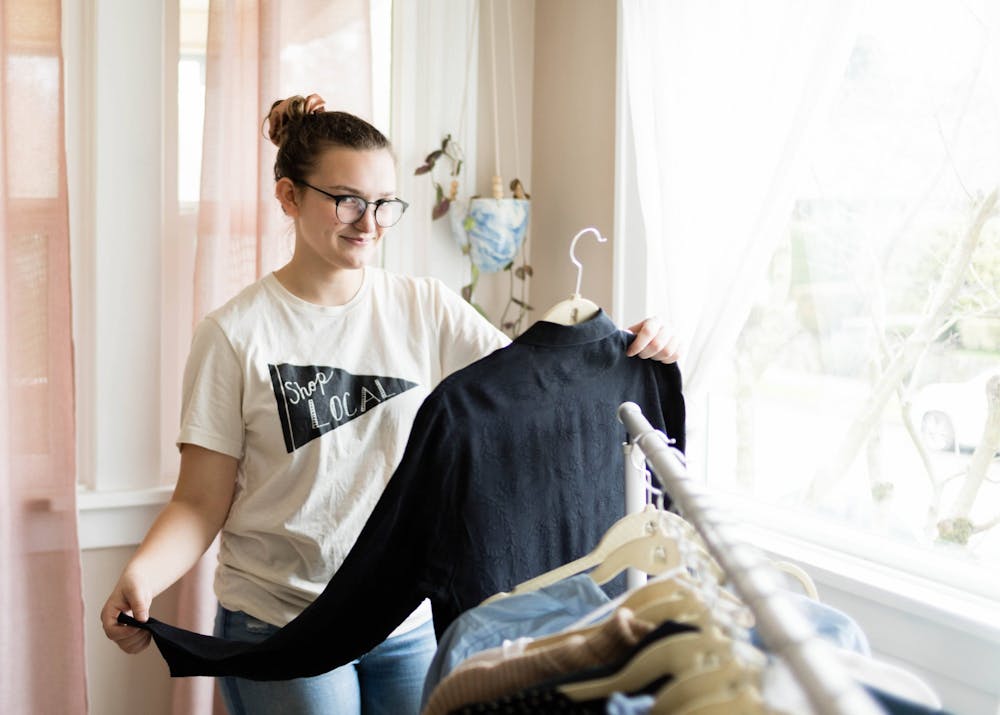College jobs don’t always have to be filing and scanning in a dingy office for hours on end. Many students find ways to make an income that’s not the traditional 9-5 and enjoy themselves while they’re at it. Three students shared their “side-hustles” with The Beacon.
Courtney Warta: Thrifty Queen
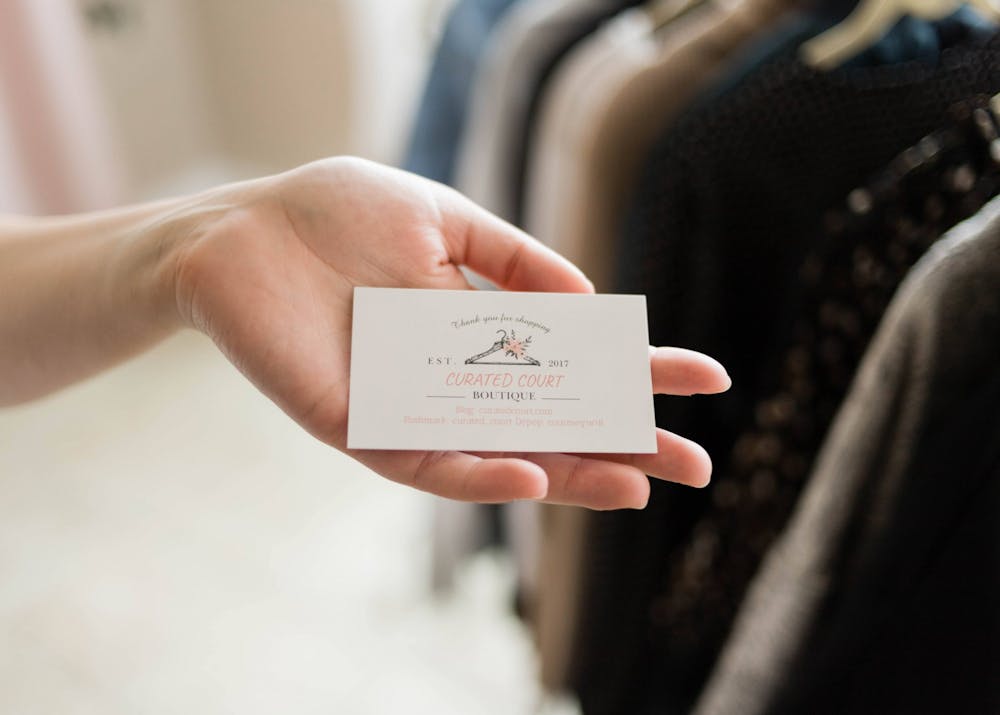
Senior Courtney Warta has accumulated over 70,000 followers on Poshmark.
With almost 70,000 followers on Poshmark, senior Courtney Warta is taking a new spin on green fashion. Poshmark is an app where anybody can sell and buy second-hand clothes. Warta began selling her own clothes three years ago when she started to realize that many people were interested in buying second hand.
She started with going to the “bins” at Goodwill, the overflow clothes that didn’t sell in stores where shoppers pay by the pound. Warta is committed to selling second hand to combat the impact that fast fashion has on the environment, even if this means thrifting clothes that may not be trendy at that moment.
“I think that the biggest issue lately is that a lot of people on Poshmark are starting to do wholesale, where they buy mass amounts of something and then resell it, and it’s usually really fashionable and on-trend,” Warta said. “Sometimes it’s really hard to compete because I want to have the same supply and demand, but also I am focusing on staying environmentally friendly and not buying cheaply made clothes.”
After Warta brings the clothes home, she washes, sanitizes and steams them so they are ready to be posted on Poshmark. Usually, she has around 100 listings at a time and sells seven items a week. It costs around $35 to buy one full cart of clothes — about 30 pieces — at the Goodwill bins, and many items on Warta’s page sell between $10 and $40 apiece. Warta said that she mainly uses her printing money on campus to print shipping labels for customers.
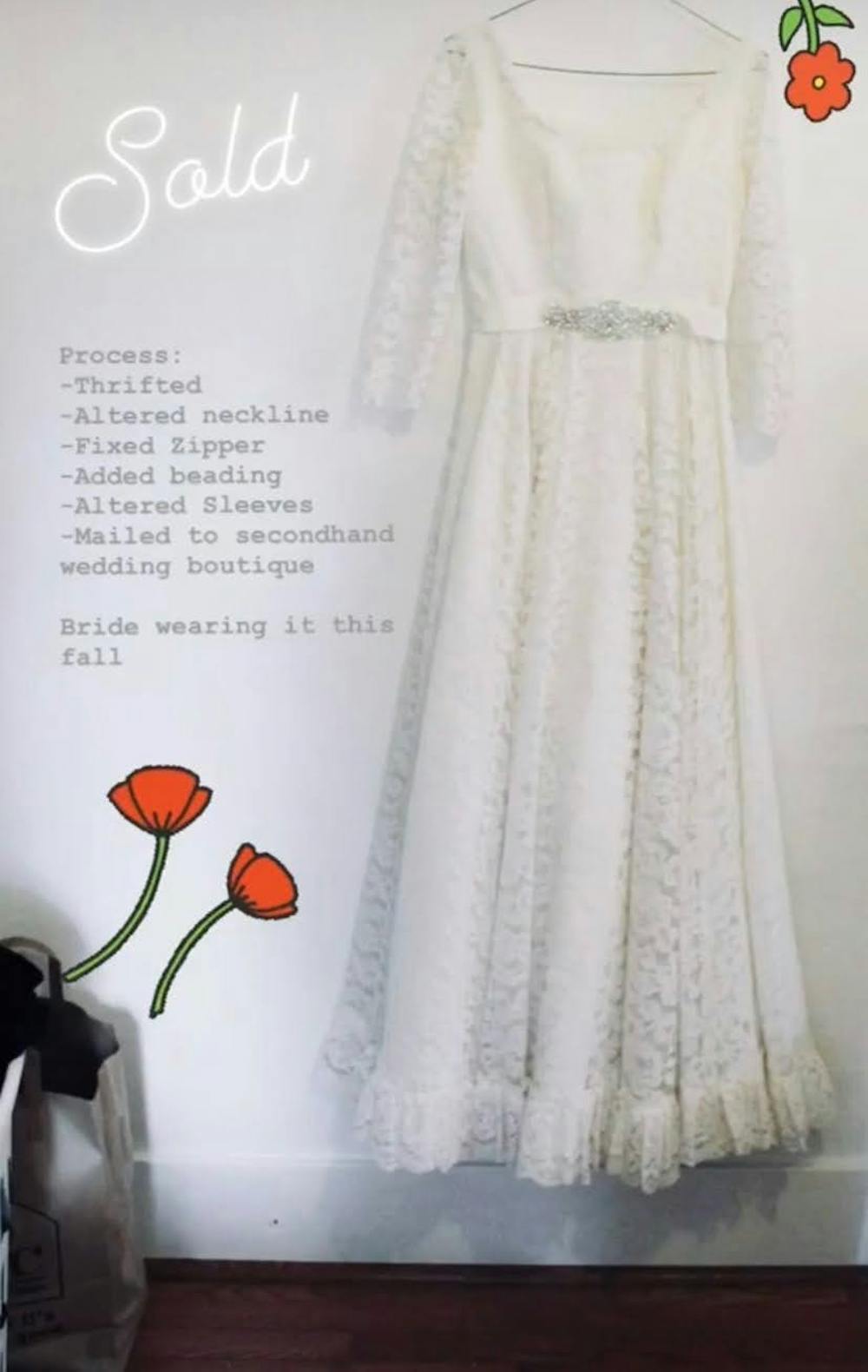
Courtney Warta cleaned, altered and sold a wedding dress from the '70s. Photo courtesy of Courtney Warta.
“I know it’s intimidating to go to thrift stores since there is so much to look through,” Warta said. “And I know a lot of it isn’t a certain style, so then I started reselling things that I thrifted. I really like streetwear, but I also like vintage graphic tees, and also minimalist Persian style. I haven’t really decided on one style. I just buy things that I would buy from other people and resell those.”
For Poshmark sellers, the presentation of the clothes is an important aspect of their business. Warta had to buy a special light to use at night to take photos of the clothes so that they would be appealing to customers.
She started giving her clothes a personal touch by cropping, dying or distressing them. Warta recalls finding a 1970s wedding dress in one of the bins. She cleaned and altered it and sold it to a second-hand wedding boutique in Michigan. The dress is now being worn in a wedding in April.
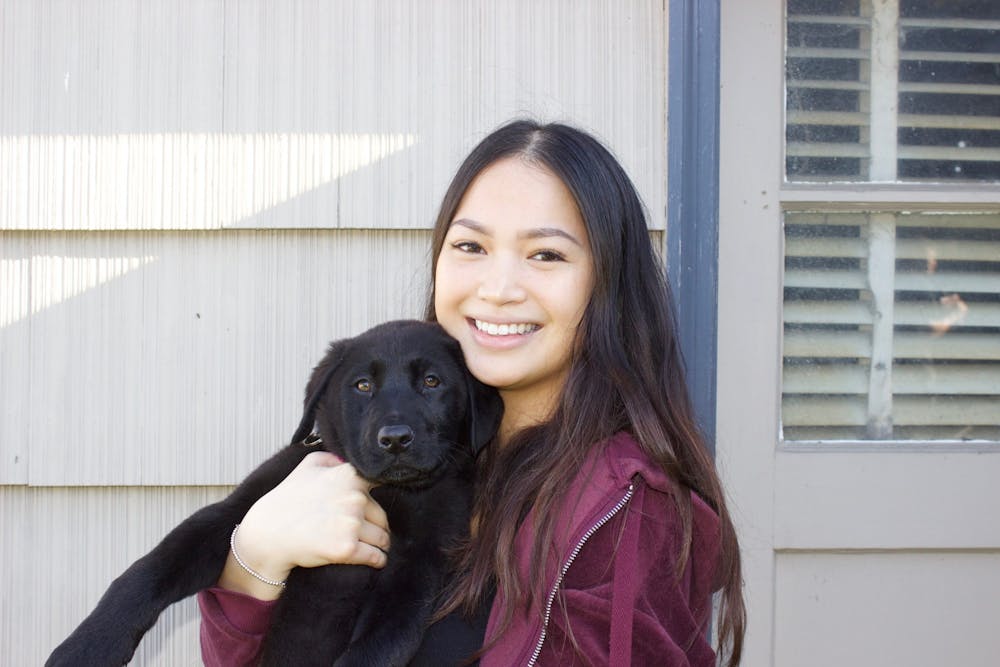
Junior nursing major Mindy Roces poses with her latest Rover - a four month old pup named Theo.
Mindy Roces: Welcome to the Doghouse
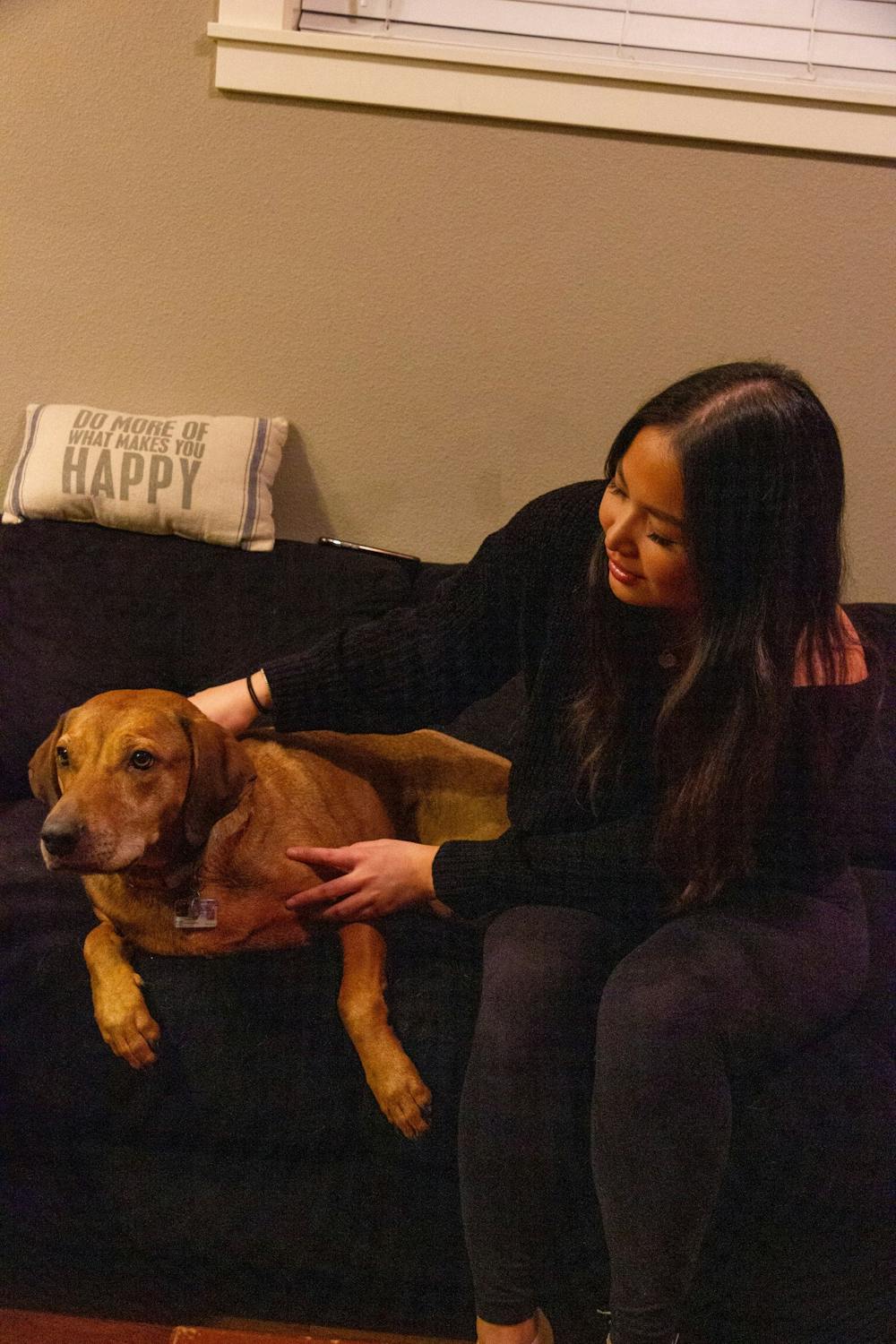
Jolene, a Rhodesian Ridgeback, is a regular and has been with Roces six times.
Junior Mindy Roces grew up surrounded by dogs and said she has always loved them. She found a way in college to spend time with dogs and make money while doing it. Since the fall of 2018, Roces has been working for the app Rover. Rover is a place for dog and cat owners to request someone to take care of their pets while they’re away.
Roces began while she still lived in the dorms, and went around to people’s houses walking their dogs occasionally during the day. Eventually, when she got a house off-campus, dogs would stay at her house for up to two weeks. Roces’ roommates got hooked as well, so now there is constantly at least one dog at their house.
To become a dog walker or sitter, users must pass a background check, watch a series of videos on how to take care of dogs, and take a physical test for putting collars on.
“I just like being around dogs. I feel like it’s good therapy for me because I miss my dogs at home. It just makes it a fun job, actually not even feel like a job,” Roces said. “Usually if I am saving up for something, like a trip, I can book a bunch of Rover stays in advance and it’s a really nice way to get some side cash.”
Usually dog-sitters charge $25 per day, to begin with, and as their ratings get higher they can raise their prices. Roces now charges $40 per day for some dogs.
According to Roces, sometimes owners prefer if there are other dogs around since, as a college student, she can’t be home all day. One time, at Roces’ house there were four dogs.
“I had a puppy one time for two weeks. I was constantly worried that he was going to chew things up in my house, or pee everywhere,” Roces said. “I felt like I always had to be home.”

Junior Zoë Sirkin enjoys the flexible hours that come with working for Postmates.
Zoë Sirkin: Meals on Wheels
Junior nursing major, Zoe Sirkin loves driving for Postmates because if she has an hour free on a school night, she can deliver food and make up to $50. Sirkin joined Postmates while saving up for a trip to the Philippines.
“I really wanted to have the flexibility that Postmates gives you,” Sirkin said. “I was babysitting for a while, which was specific days, and it got really complicated as a college student. You can listen to music and do your own thing (while Postmating) because you’re not on anybody else’s schedule.”
Sirkin said she likes to bring her friends with her while she makes deliveries. According to Sirkin, this is a great way for her to spend time with friends and make money. Postmates also notifies its drivers when orders are in high demand, so they know a good time to go “online.”
Postmates does not only provide food delivery service, but also includes other products as well. One of Sirkin’s craziest deliveries was for Apple when she had three Apple Watches and a Macbook Air in the car. She realized the amount of trust that comes with this, and why Postmates requires background checks before employees are hired.
“I worked at restaurants in the past, but this summer I think I might just drive for Postmates because it’s so popular, and it’s on my own schedule,” Sirkin said. “Usually I drive for two to three hours, but sometimes I’ll just do one delivery on my way to my parent’s house, or something. You can see where you’re going and if a delivery is on the way to what you’re doing anyway, why not?”
Fiona O’Brien is a reporter for The Beacon. She can be reached at obrienf21@up.edu.



